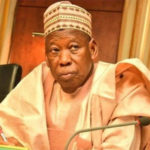Nigeria, no doubt, is a plural state; and therefore not immune to conflict. In broad terms, conflict can be categorised as constructive or dysfunctional, and unconstructive or destructive. In constructive conflict, there may be divergent shades of opinions on issues, but the people disagree and agree.
It promotes tolerance, mutual understanding, unity and peace. Whereas, unconstructive conflict encourages antagonism, segregates people of different backgrounds; sociocultural, ethno-religious and political familiarities.
It communicates hatred and sentiments which often lead to violent conflict such as ethnic/communal clashes, sedentary farmers/herders’ conflict as well as religious and political savagery.
Violent conflict reigns essentially in the absence of peace, encouraging criminalities such as kidnapping, armed robbery/banditry, rival cult war, and various rebellious activities. These breed a state of insecurity as the situation offers economic fulcrum for conflict merchants.
FG seeks stakeholders’ collaboration on energy stability
Why FG must restore sex education in curriculum – Society
Although conflict in every human society is unavoidable because of varying interests in social interactions, it is my strong belief that dysfunctional conflicts and violence can be restrained with peace mainstreaming policies that are feasible and promotion of appropriate education on the benefits of maintaining peaceful atmosphere, and the negative consequences of allowing circumstances of violent conflicts in the society.
The Nordic countries: Demark, Finland, Norway, Sweden, Iceland, Greenland, the Faroe and Aland Islands, are very good examples of countries that evolved very effective ways of managing conflicts for sustenance of peace. In fact, histories show that the Scandinavians have built a system of resolution of internal conflicts through peaceful mechanisms for more than 200 years.
Some of the reasons given for their enviable peaceful conditions and happiness include the reinforcement of the connection between democracy and peace, high level of trust among the citizens that strengthens social cohesion and cooperation between the government and its subjects.
When peace eludes, society retrogresses both in terms of human and material resources and socially and economically. Peace to me, is therefore a concept that is all encompassing. It is that delicate state that guarantees general human and economic well-being and progress which must seriously be guarded.
Peace and conflict resolution scholars and commentators have described peace in several terms; the definitions are many. According to Wikipedia, “Peace is a concept of societal friendship and harmony in the absence of hostility and violence. In a social sense, peace is commonly used to mean a lack of conflict (such as war) and freedom from fear of violence between individuals or groups.” Officials of the United Nations say peace means dignity, well-being for all, not just absence of war. “Economies do best in times of peace. Peace and prosperity go hand-in-hand.” – Quora.
We urgently need to join hands with our leaders to reclaim our country from socioeconomic plunderers and of the precious lives of the people. The time to trade peace with one another is now, and all Nigerians must engage in the trading.
Every right-thinking citizen must market it in places of worship, schools, hospitals, markets, offices, and in any other accessible spaces. It gladdens my heart that President Bola Ahmed Tinubu at the swearing-in ceremony of the 45 nominees confirmed as ministers utterly underscored the extremely urgent need for members of the Federal Executive Council (FEC) to ensure the delivery of the points of the agenda of his government in ways and manner that will engender mutual trust, peace and national unity.
In order to achieve the noble cause of building a compact mutual trust, peace and national cohesion among the people so as to guarantee the attainment of our socioeconomic pursuits among other national goals, there must be a deliberate national policy for the mainstreaming of peace coordinated by the country’s apex peace and conflict agency, the Institute for Peace and Conflict Resolution (IPCR).
There should be a considerable budgetary allocation for the management and resolution of conflicts in the country and also for the building and promotion of peace that is durable. It is also my thinking that there should be a budget no matter how little for the peace promotion component in the budget of projects of every MDA.
I have also learnt while at IPCR that even the conception and location of projects could induce dysfunctional conflict, underscoring the need for our political leaders to receive appropriate peace and conflict briefs as implications of projects especially those sited within communities with diverse religious and sociocultural backgrounds.
Let me say that it will be highly beneficial for members of FEC, the State Executive Councils (SECs) and councillors involved in governance to undertake the basic peace and conflict resolution courses run by the IPCR’s National Peace Academy (NPA) as a demonstration of the seriousness attached to the issues of peace building and conflict management.
Hence, communication is vital to every issue of national development; there is also the need for adequate funding of the Federal Ministry of Information and National Orientation to effectively package a national social orientation programme addressing issues of commitment to public matters, national loyalty and patriotism. We need to develop a national socio-political culture.
Michael is Head, Press and Public Relations, Office of the Surveyor General of the Federation
 Join Daily Trust WhatsApp Community For Quick Access To News and Happenings Around You.
Join Daily Trust WhatsApp Community For Quick Access To News and Happenings Around You.

